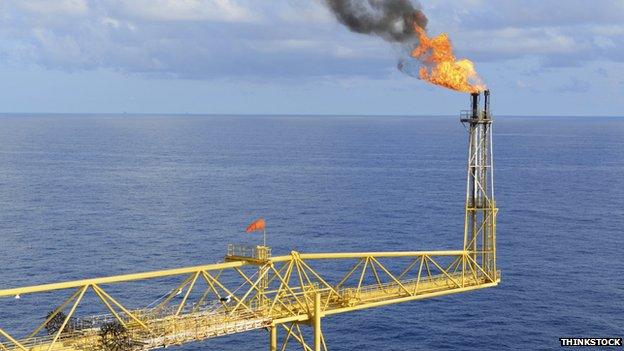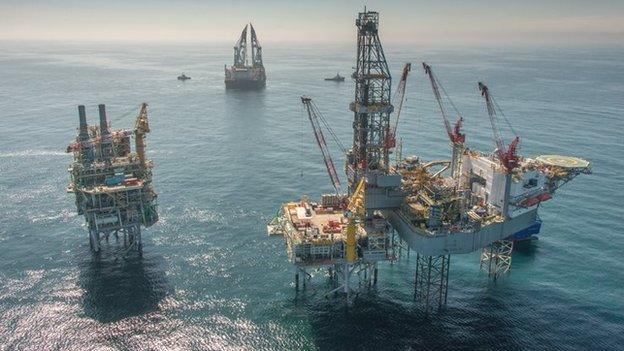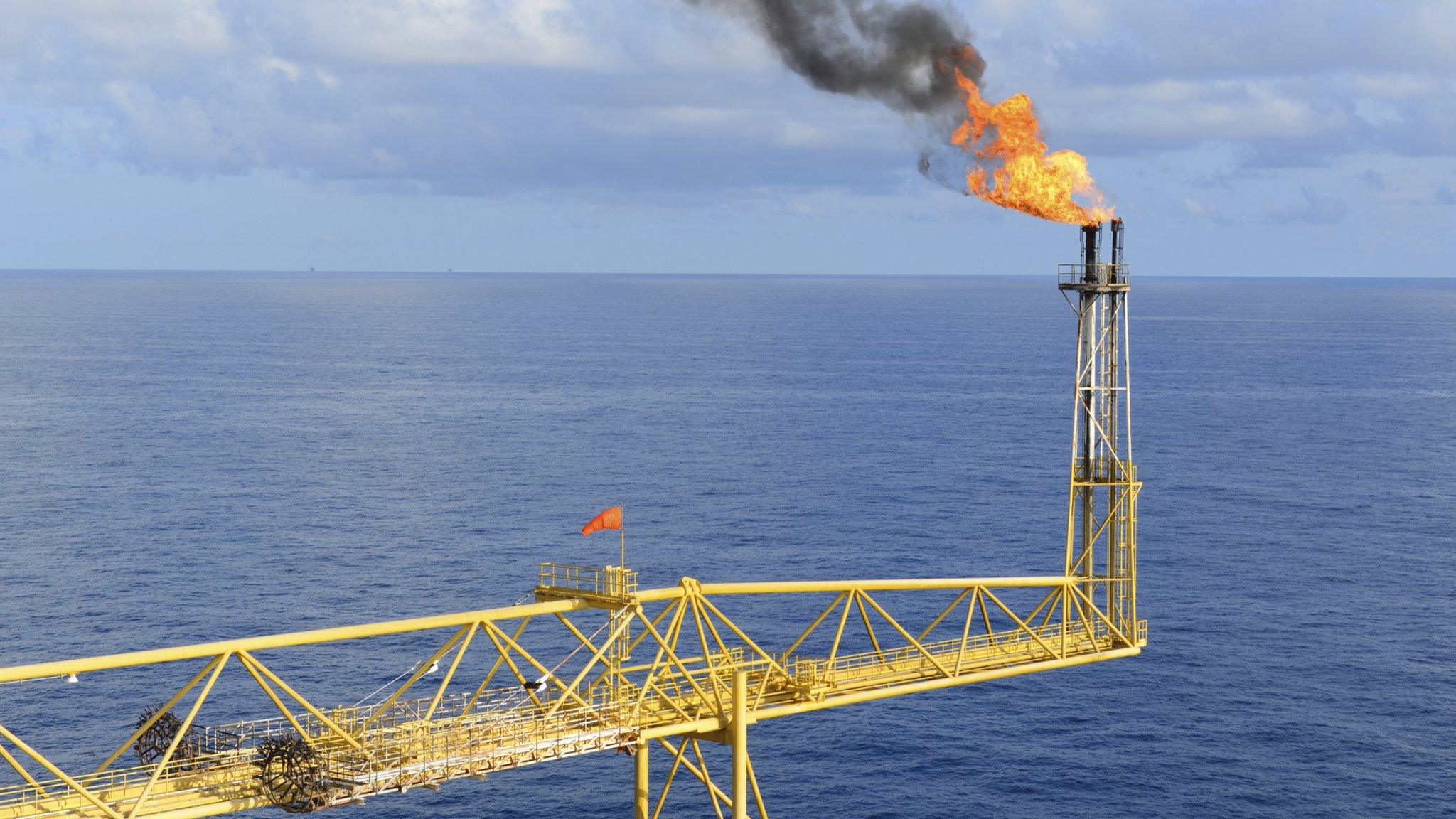Oil industry in North Sea capital investment warning
- Published

Capital investment in the North Sea could halve by 2017 unless there is urgent reform of the tax regime in light of a big drop in the price of crude oil, according to Oil & Gas UK.
Its warning came after the price of Brent oil hit a four-year low.
It said industry costs were also escalating, while pre-tax returns for the UK sector had fallen to their lowest level for nine years.
The industry body added that the situation was "unsustainable".
The warning follows evidence it submitted last month to a Treasury consultation on the North Sea tax regime, pointing to what it called "the deteriorating economics" of the mature UK Continental Shelf (UKCS).
Oil & Gas UK said the situation had become "even more acute" since that submission.
It argued that the Brent oil price had fallen $30 since its peak in mid-summer and showed no sign of recovery, while industry unit costs rose by 26% last year.

By BBC Scotland economics editor Douglas Fraser
There's both raw commercial interest and significant alarm in the latest statement from Britain's offshore oil industry.
Capital investment was already due to fall from record highs, but the sharp decline in the price of Brent crude - touching $82 on Wednesday before a rally - has focused minds, and made it look like investment will be cut in half within only three years.

Brent is the benchmark for about half the world's oil.
The fall in the oil price has been largely blamed on an abundance of supply and lower demand, partly prompted by lower manufacturing and industrial production in China.
'Not sustainable'
Oil & Gas UK chief executive Malcolm Webb said: "Profitability on the UKCS is insufficient to maintain the uncompetitive high tax rates of 62%-81% paid by production companies.
"Last year total UKCS expenditure exceeded post-tax revenues; this year it is heading in the same direction. This is not a sustainable situation.
"Without swift action, capital investment is set to halve by 2017.
"Urgent tax reform is now needed for the North Sea to remain globally competitive and attractive for investors."
He added: "The industry is now taking urgent steps to address its significant cost challenge, promoting efficiencies through innovation and simplifying work practices and processes.
"But the Treasury too has a critical role to play in the implementation of the Wood Review's recommendations as one of the three crucial parties (alongside industry and the new Oil and Gas Authority) with the remit to rebuild confidence in Britain's offshore industry and maximise recovery of oil and gas from the UKCS."
Responding to the comments, a Treasury spokeswoman said: "The government is currently undertaking a review of the oil and gas fiscal regime to explore how it can continue to encourage investment in the North Sea and help maximise the value of the country's oil and gas resources for the UK, whilst ensuring the nation continues to receive a fair share of profits.
"We will publish the initial conclusions of the oil and gas fiscal review alongside the Autumn Statement."
'Billions less'
In a separate development, the UK government's Scottish Secretary Alistair Carmichael claimed the recent fall in global oil prices would have left an independent Scotland with billions less to spend on "essential public services".
He said Treasury analysis showed the Scottish budget would have dropped by £8.7bn over three years under independence, when compared with the Scottish government's estimates.
Mr Carmichael added that voting to stay in the UK had been the "best choice" for Scotland in "avoiding this sort of financial shock".
A spokesman for Scotland's Finance Secretary John Swinney said: "These are bizarre comments from a UK Cabinet minister, gloating about a fall in his own government's revenues.
"This is also a boomerang attack from Alistair Carmichael, coming on the same day that the oil industry has attacked the UK government's damaging North Sea tax regime, which continues to threaten jobs and investment."
- Published3 November 2014

- Published30 October 2014

- Published23 October 2014
